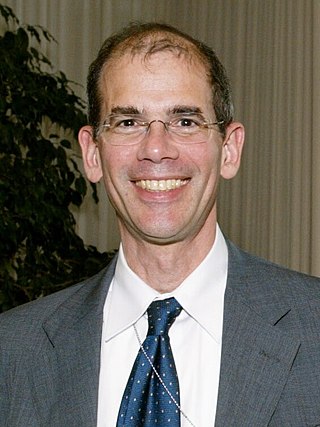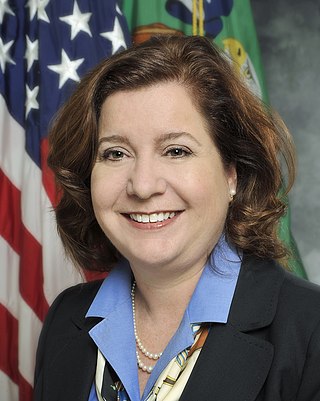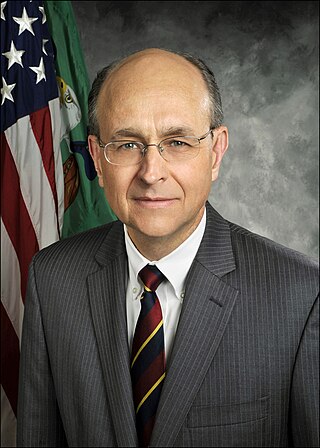
George William Miller was an American businessman and investment banker who served as the 65th United States secretary of the treasury from 1979 to 1981. A member of the Democratic Party, he also served as the 11th chairman of the Federal Reserve from 1978 to 1979. Miller was the first person to hold both of those posts.

Hugh Gardner Ackley was an American economist and diplomat.
Kristin J. Forbes is an American economist. She is the Jerome and Dorothy Lemelson Professor of Management and Global Economics at the MIT Sloan School of Management.

The School of International and Public Affairs at Columbia University (SIPA) is the international affairs and public policy school of Columbia University, a private Ivy League university located in Morningside Heights, Manhattan, New York City. It is consistently ranked one of the top graduate schools for international relations in the world.

Marina von Neumann Whitman is an American economist, writer and former automobile executive. She is a professor of business administration and public policy at the University of Michigan's Ross School of Business as well as The Gerald R. Ford School of Public Policy.

William Arthur Niskanen was an American economist. He was one of the architects of President Ronald Reagan's economic program and contributed to public choice theory. He was also a long-time chairman of the Cato Institute, a libertarian think-tank.

Harvey Sheldon Rosen is an American economist and academic. Prior to his retirement and subsequent appointment as Emeritus Professor in 2019, Rosen was the John L. Weinberg Professor of Economics and Business Policy at Princeton University, and former chairperson of the Council of Economic Advisers. His research focuses on public finance. Harvard University economist and former Council of Economic Advisers chairman Greg Mankiw credits Rosen as one of four mentors who taught him how to practice economics, along with Alan Blinder, Larry Summers, and Stanley Fischer.

The Under Secretary of Commerce for Economic Affairs, or USC-EA, is a high-ranking official in the United States Department of Commerce that serves as the principal adviser to the United States Secretary of Commerce on economic analysis. The Under Secretary is ex officio the Administrator of the Economics and Statistics Administration.

Alicia Haydock Munnell is an American economist who is the Peter F. Drucker Professor of Management Sciences at Boston College's Carroll School of Management. Educated at Wellesley College, Boston University, and Harvard University, Munnell spent 20 years as an economist at the Federal Reserve Bank of Boston, where she researched wealth, savings, and retirement among American workers. She served in the Bill Clinton administration as Assistant Secretary of the Treasury for Economic Policy and as a member of the Council of Economic Advisers. Since 1997 she has been a professor at Boston College and director of its Center for Retirement Research, where she writes on retirement income policy.

Martin Anderson was an American academic, economist, author, policy analyst, and adviser to US politicians and presidents, including Ronald Reagan and Richard Nixon. Under the Nixon administration, Anderson was credited with helping to end the military draft and creating the all-volunteer armed forces. Under Reagan, Anderson helped draft the administration’s original economic program that became known as “Reaganomics.” A political conservative and a strong proponent of free-market capitalism, he was influenced by libertarianism and opposed government regulations that limited individual freedom.

Douglas William Elmendorf is an American economist who is the dean and Don K. Price Professor of Public Policy at the John F. Kennedy School of Government. He previously served as the Director of the Congressional Budget Office (CBO) from 2009 to 2015. He was a Brookings Institution senior fellow from 2007 to 2009, and briefly in 2015 following his time at the CBO, and was a director of the Hamilton Project at Brookings.

Michael S. Barr is an American legal scholar who has been the second vice chair of the Federal Reserve for supervision since 2022. From 2009 to 2011, he was assistant secretary of the treasury for financial institutions under President Barack Obama.

Betsey Ayer Stevenson is an economist and Professor of Economics and Public Policy at the University of Michigan Gerald R. Ford School of Public Policy. Additionally, she is a fellow of the Ifo Institute for Economic Research in Munich, a research associate at the National Bureau of Economic Research and servers on the board of the American Economic Association. The Obama Administration announced her appointment as a Member of the Council of Economic Advisers, a post she served from 2013 through 2015. She previously served as Chief Economist of the U.S. Department of Labor under Secretary Hilda Solis from 2010 to 2011. Previously, she was an Assistant Professor of Business and Public Policy, at the Wharton School of the University of Pennsylvania.

Phillip Lee "Phill" Swagel is an American economist who is currently the director of the Congressional Budget Office. As Assistant Secretary of the Treasury for Economic Policy from 2006 to 2009, he played an important role in the Troubled Asset Relief Program that was part of the U.S. government's response to the financial crisis of 2007–08. He was recently a Professor in International Economics at the University of Maryland School of Public Policy, a non-resident scholar at the American Enterprise Institute, senior fellow at the Milken Institute, and co-chair of the Bipartisan Policy Center's Financial Regulatory Reform Initiative.

Janice Caryl "Jan" Eberly is an American economist. Since 2002 she has been the James R. and Helen D. Russell Distinguished Professor of Finance at the Kellogg School of Management of Northwestern University. She served from 2011 to 2013 as Assistant Secretary of the Treasury for Economic Policy and chief economist of the United States Department of the Treasury. She was named a Fellow of the American Academy of Arts and Sciences in 2013. Her research focuses on the intersection of macroeconomics and finance.

Karen Dynan is an American economist who is Professor of the Practice of Economics at Harvard University and a Non-resident Senior Fellow at the Peterson Institute for International Economics. She previously served as the Assistant Secretary of the Treasury for Economic Policy and Chief Economist of the United States Department of the Treasury, having been nominated to that position by President Barack Obama in August 2013 and confirmed by the U.S. Senate in June 2014. From 2009 to 2013, Dr. Dynan was the Vice President and Co-director of the Economic Studies program at the Brookings Institution. Prior to joining Brookings, she served on the staff of the Federal Reserve Board for 17 years. Dr. Dynan is an expert on macroeconomic policy, consumer behavior, household finance, and housing policy.

Ramin Toloui is an American academic, civil servant, and financial advisor who serves as Assistant Secretary of State for Economic and Business Affairs in the Biden Administration.

D. Nathan Sheets is an American economist and government official who served as Under Secretary of the Treasury for International Affairs from 2014 to 2017. He has been Global Chief Economist at Citigroup since October 2021.

David I. Meiselman was an American economist. Among his contributions to the field of economics are his work on the term structure of interest rates, the foundation today of the implementation of monetary policy by major central banks, and his work with Milton Friedman on the impact of monetary policy on the performance of the economy and inflation.

















